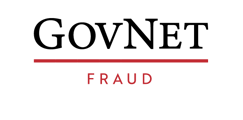In the ever-evolving landscape of public administration, the imperative to combat financial crimes looms large. Governments worldwide face the daunting challenge of safeguarding public funds and ensuring the integrity of financial transactions. To address these concerns, robust oversight mechanisms are essential. This blog post explores the importance of strengthening oversight and enhancing anti-financial crime measures within government institutions.
Financial crimes, ranging from fraud and corruption to money laundering and embezzlement, pose a significant threat to the stability and trustworthiness of public sector operations. These illicit activities not only result in financial losses but also undermine public confidence in government institutions. As such, proactive measures must be taken to detect, prevent, and prosecute financial crimes effectively.
Central to these efforts is the need for robust oversight mechanisms that promote transparency, accountability, and compliance within government agencies. Oversight bodies, such as audit committees, internal control units, and anti-corruption agencies, play a crucial role in monitoring financial transactions, identifying irregularities, and holding individuals accountable for misconduct.
One of the key strategies for enhancing oversight is the implementation of stringent financial controls and risk management frameworks. By establishing clear policies, procedures, and protocols, government agencies can mitigate the risk of financial crimes and ensure adherence to ethical standards and regulatory requirements. Regular audits and reviews further strengthen oversight by providing independent assessments of financial processes and identifying areas for improvement.
Moreover, leveraging technology and data analytics can significantly enhance the effectiveness of oversight mechanisms in combating financial crimes. Advanced software tools and algorithms can analyse vast amounts of financial data in real-time, flagging suspicious transactions and patterns for further investigation. This proactive approach enables authorities to detect fraudulent activities promptly and take decisive action to mitigate risks.
Collaboration and information-sharing between government agencies and law enforcement bodies are also vital in strengthening oversight and combating financial crimes. By sharing intelligence and coordinating efforts, agencies can pool resources and expertise to identify systemic vulnerabilities and target high-risk individuals or entities engaged in illicit activities. Furthermore, international cooperation is essential in addressing cross-border financial crimes and extraditing offenders to face justice.
In addition to preventive measures, effective oversight requires robust enforcement mechanisms to hold wrongdoers accountable for their actions. Prosecuting individuals involved in financial crimes sends a clear message that such behaviour will not be tolerated and acts as a deterrent to potential offenders. However, enforcement efforts must be accompanied by fair and impartial judicial processes to ensure due process and uphold the rule of law.
Ultimately, strengthening oversight and enhancing anti-financial crime measures in government is an ongoing endeavour that requires commitment, collaboration, and vigilance. By implementing robust oversight mechanisms, leveraging technology and data analytics, fostering collaboration between agencies, and enforcing accountability, governments can effectively combat financial crimes and safeguard public funds.
In conclusion, the importance of strengthening oversight and enhancing anti-financial crime measures in government cannot be overstated. By prioritising transparency, accountability, and compliance, and adopting proactive strategies to detect and prevent illicit activities, governments can uphold the integrity of public sector operations and maintain public trust in government institutions. Through concerted efforts and effective cooperation, we can create a more resilient and trustworthy public administration that serves the best interests of society.

Nicole Lummis
After a career in Project Management, I realised how important it was for me to pursue a career with a more creative career path. I have a passion for creating engaging digital content whether through written content or the use of image, graphics or videos.




